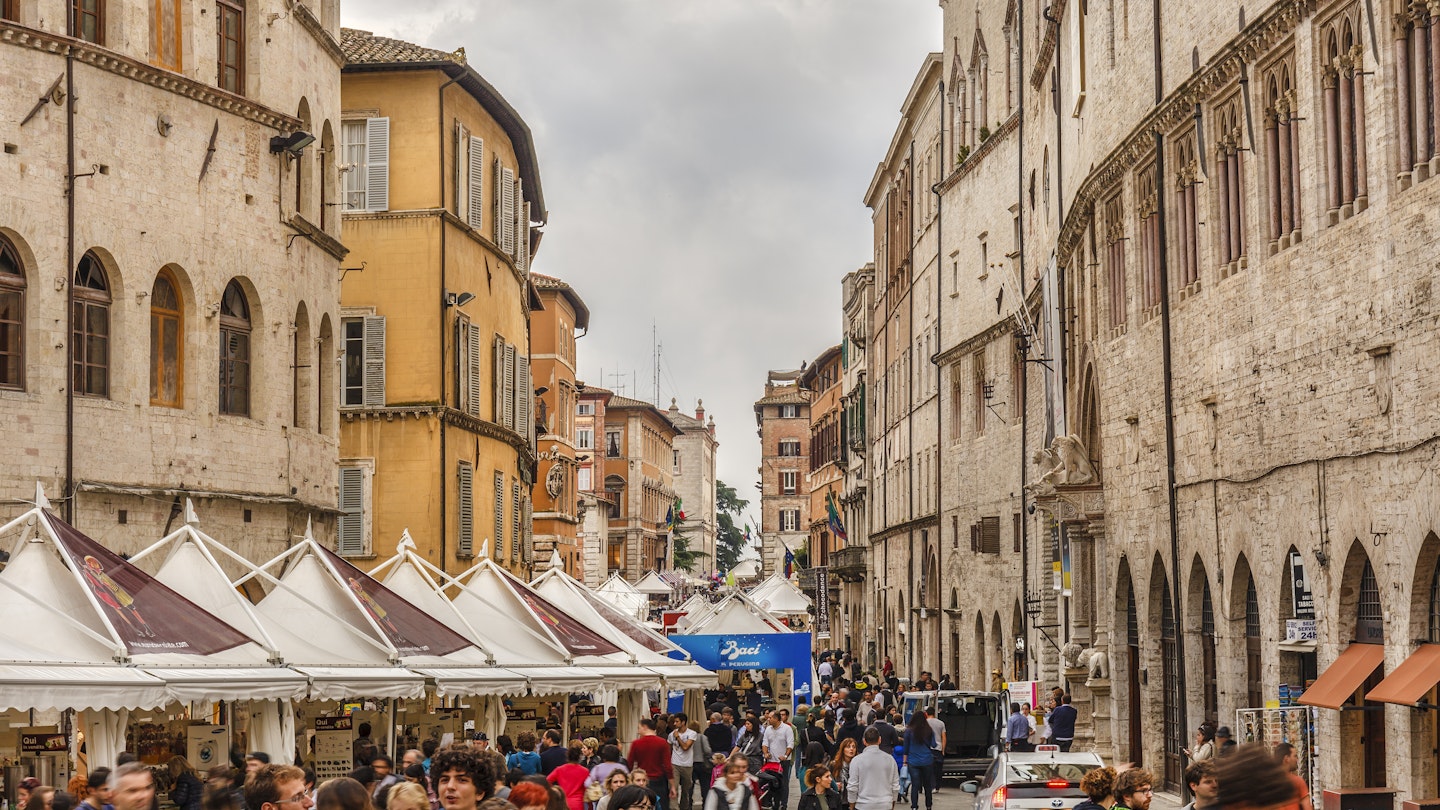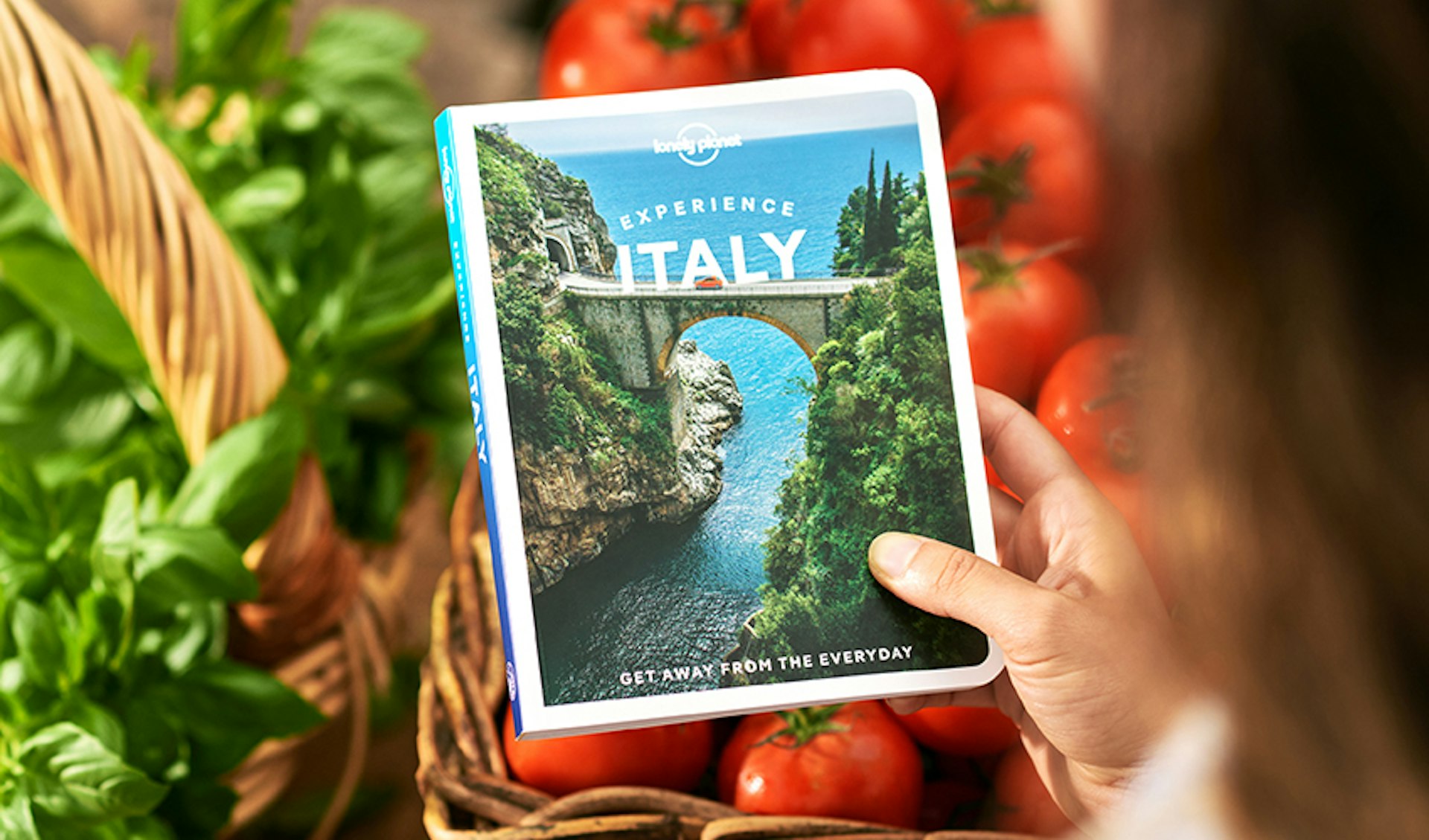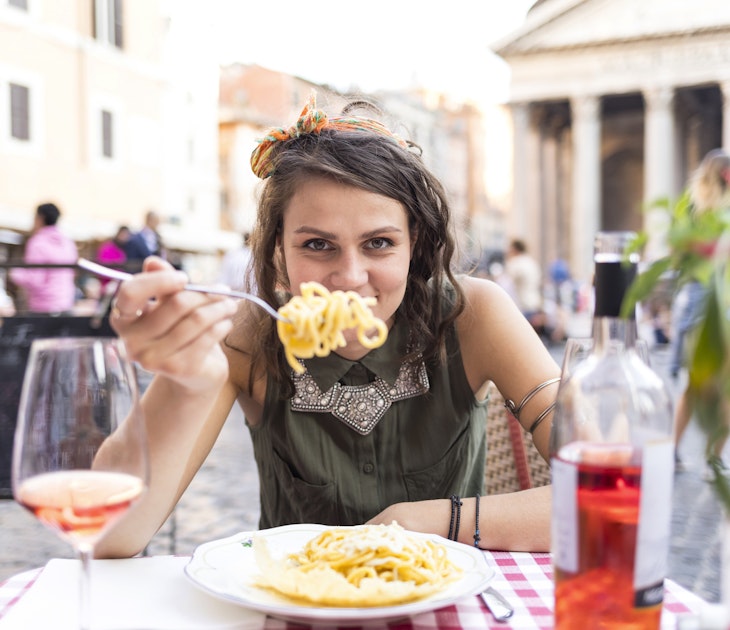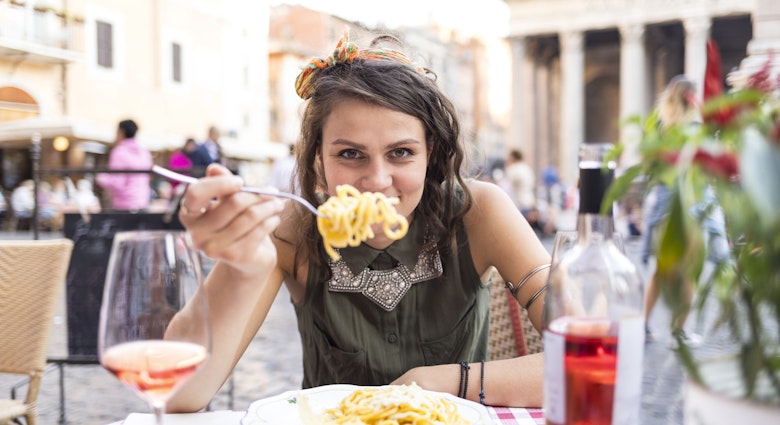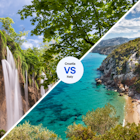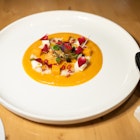Perugia's location along the slope of the prominent and iconic hills that define the Umbrian region has made it strategically important since the Etruscan era and its sizable student population counts an impressive number of foreign students.
Almost exactly halfway between Rome and Florence, Perugia has been a pilgrimage site for music lovers from around the world, who flock to the city every summer for the Umbria Jazz festival. And as the capital of the “green heart of Italy”, Perugia overflows with everything from truffles, olive oil and wine to, of course, chocolate.
With easy access to train lines, an airport just outside of the city, and driving routes that connect it to every major hub, Perugia is an ideal base camp to explore central Italy. But a word of caution: the city is enchanting to the point of seductive, so you may just want to stay a while!
1. Fall in love with the historic center
If you have a day to spend in the city, do it outdoors: with a relatively mild climate, Perugia is full of spring breezes, summer sunshine, and autumn chills. It has one of the largest ratios of student-to-resident populations in Italy and on any given day you’ll see scores of young people sitting in clusters on the steps of the Cattedrale di San Lorenzo in Piazza IV Novembre. They likely won’t be cramming for exams but you’ll find plenty of old friends carousing and young love blooming. Stick around for a while and watch new couples meet in front of the distinctive Fontana Maggiore for a “passeggiata” along the Corso Vanucci towards the Giardini Carducci, named for the poet who bestowed the title of “Italy’s Green Heart” onto Umbria.
Better yet, take your own stroll along the via dell’Acquedotto, which connects the center with the Porta Sant’Angelo neighborhood through a narrow, impossibly romantic pathway that’s lined with houses and secret gardens. Make sure to reserve a table at Punto di Vista on Viale Indipendenza (right near Giardini Carducci) where the cocktails are the perfect complement to the panoramic views.
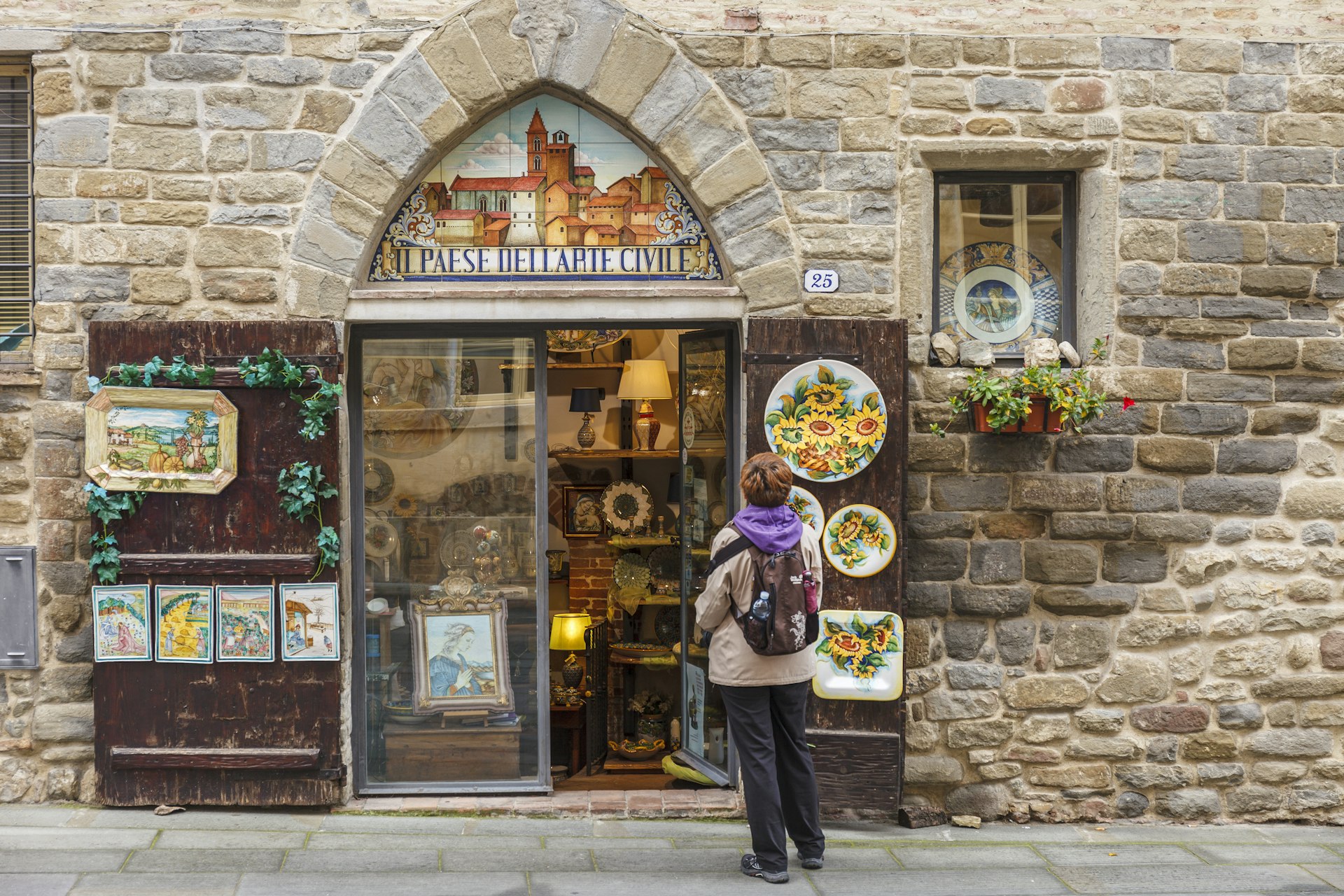
2. Shop for ceramics, cashmere and harmony
The nearby town of Deruta is one of the most famous centers for ceramics in the world. Since the middle ages, artisans have practiced maiolica, a type of tin-glazed pottery decorated with elaborate and colorful designs against a white background. If you can’t make the visit to one of the 200 workshops in Deruta, a stroll along Via dei Priori in Perugia’s center offers plenty of choices, from the classical style at Bettini to the more contemporary work of Maria Antonietta Taticchi’s Materia Ceramica and Mogré, where Monica Grelli uses ceramics as a form of art therapy.
If you require a more immersive form of retail therapy visit Solomeo, the “hamlet of cashmere and harmony” that designer Brunello Cucinelli has transformed into quite possibly the most philosophical shopping experience in the world. Cucinelli, who was born and raised in the town, has turned it into a monument to beauty and the art of living well, which mirrors the philosophy of his cashmere empire. If you’ve got the funds for his collection, you can book a private tour of the town, its flagship store, the factory, and the nearby park which features the 22-meter (72ft) Monument to Human Dignity. If not, enjoy the stroll and the views.
3. Fulfill all your chocolate dreams
If you’ve only heard one thing about Perugia, it likely had something to do with chocolate, and for that, you can thank Luisa Spagnoli and Giovanni Buitoni. Together, they created the “bacio”, perhaps one of the most iconic confectionaries and the symbol of the iconic chocolatier, Perugina. If you’re a chocolate lover, you won’t want to miss a visit to the Perugina factory or museum, which organizes tours and classes to learn how to make their signature chocolate and hazelnut bonbons.
For true devotees, plan your trip for the fall and buy a ticket to Eurochocolate, a ten-day festival that takes place all over Perugia and features chocolate art displays, chocolate-inspired street performances, and chocolate sculpting. You’ll find plenty of Perugina on display along with labels from across Italy and the world, all of whom converge within a city so sweet, it inspired a century-long love story.
4. Take a stroll through the National Gallery
Built over two centuries, the Palazzo dei Priori is perhaps the best argument against a standardized work week: the stops and starts that made it such a painstakingly long work have also rendered it one of Perugia’s most evocative structures. It is at once imposing and playful, and its massive scale both towers over and embraces the rest of the medieval center. It is, perhaps, the perfect analogy for a city is both soaring and intimate; a crossroads that somehow retains the memory of every face who has passed through.
One of the city’s most famous faces Pietro Vannucci, also adopted the name of the town, becoming the artist known as Perugino. The Palazzo dei Priori is suitably the home for many of his works, in the Galleria Nazionale dell'Umbria that occupies the palace’s upper floors. The collection occupies forty rooms of the Palace and covers seven centuries of Italian art.
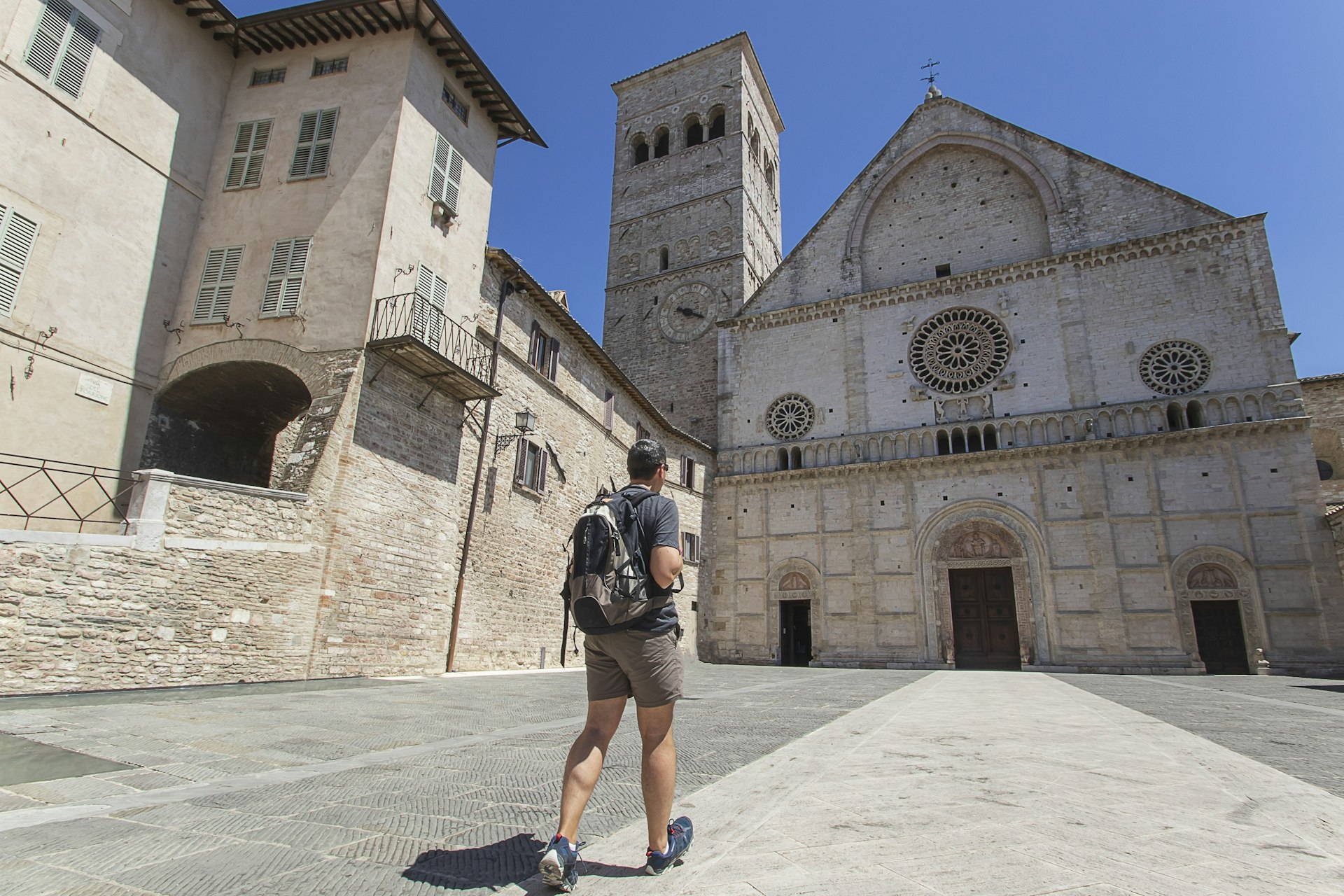
5. Follow the pilgrims to Assisi
Located less than a half hour’s drive from Perugia, Assisi is the birth and resting place of Saint Francis, one of the patron saints of Italy. The town, a Unesco heritage site, is filled with an extraordinary mix of pilgrims and tourists, who often overlap: don’t be surprised to find backpackers walking alongside monks up to the Basilica di San Francesco and the accompanying Sacro Convento, both of which are visible for miles on approach to the town.
Assisi attracts more tourists than almost anywhere in Umbria and there are plenty of restaurants, hotels, and shops to visit. But if you want to get something really special from Assisi look for the ubiquitous Tau Cross, a simple wooden amulet that Saint Francis used as his personal symbol. Pick one up at Tomassetti Arte Sacra in the historic center and get a history lesson from the maestro himself.

